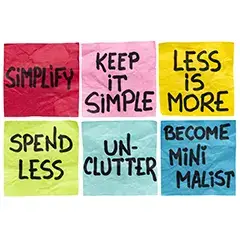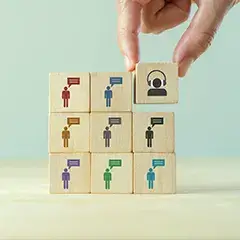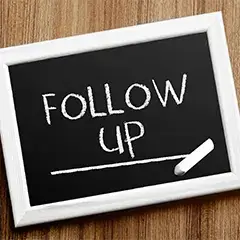
7 Essential Soft Skills for Sales Success at Trade Shows
Call it the most evident form of demonstration effect in marketing, trade shows are characterized by cut-throat competition among participating brands to grab the attention of visitors, engage with them, generate leads, answer queries and close sales deals.
While all sales representatives that have participated in trade shows shall agree that setting up beautiful trade show rental exhibits augments brand visibility, it is equally important for sales representatives to leverage emotional intelligence and motivation to engage and convince visitors within a very short frame of time.
At the end of the day, there is no substitute for great soft skills in the fiercely competitive arena of trade shows to create the winning edge. What soft skills do sales representatives need to develop to create brand equity at trade shows?
Being empathetic
The first step towards achieving success at trade shows is to develop the skill of being empathetic towards visitors. For sales representatives taking charge at their booth, this translates into being a good listener.
Listening to the prospects’ requirements and problems enables a sales representative to step into the shoes of his opposite number, know and understand the pain points and map a journey towards offering a solution to the problem through the products and services that his brand offers.
 Being an Effective Communicator
Being an Effective Communicator
What does it mean for a sales representative attending a trade show to be an effective communicator? It is about speaking confidently while following a well rehearsed script and being able to convince the other number that his force of argument is logically the best choice for the latter.
It also means that the sales guy should not use meaningless buzzwords, weed out the unnecessary particulars of information and be as person-specific as possible.
For example, talking to a prospect is not the same as talking to a colleague.
Being Humble
The fine art of marketing at trade shows calls for developing humility. The salesperson at the trade show booth may face questions and queries to which he may not have the answers.
In other cases, he may be erroneous in offering information. It is important to realize and acknowledge if a mistake has indeed been made.
Thanking prospects for raising queries needing further clarity from the sales rep’s company, accepting the lack of knowledge of something and assuring the prospect that the matter shall be taken care of is a skill and adds to the convincing capabilities.
Time Management
Time management is a soft skill that sales representatives need to develop to deal with rush hour pressure before, during and after trade shows.
Ace sales representatives follow and adhere to well-practiced timelines to be spontaneous with arranging trade show booth displays, banners and furniture at the event premises in rush hour. Time management at trade shows is about being fast, smart and decisive in action.
Collaboration and teamwork
Sales representatives never work as a one-man-army. They work in teams. There has to be great coordination among the team members participating at the trade show. This happens when team members know each other’s roles and responsibilities and stick to the division of tasks.
They may also have to be on stand-by mode to fill up the gap for a teammate when the latter goes for a tea break, meal or has an email to respond to. Team building and teamwork sessions before the trade show event are important aspects of preparation.
Demonstration skills
Trade shows are all about show business. Demonstration skills hold the key to being able to convey the brand’s message to the visitors at the trade show. What are the components of the demonstration skills needed to have the winning edge at trade shows?
First is good product knowledge.
Second is product positioning.
Third is augmenting the brand impression using trade show displays.
Fourth is answering questions from visitors to resolve doubts and instill confidence.
Fifth is seeking feedback on the demonstration through both verbal and non-verbal communication.
Following Up

A trade show is one of many touchpoints to engage and develop. It is important for sales representatives to follow up with visitors after the trade show. Trade shows are gold mines of business intelligence and lead generation. Effective sales guys show up after the trade show as well.
“Thank you” notes, follow-up emails, cold calls and field visits ensure that the momentum generated at the trade show spills over to the next level of relationship building and sales.
In the final diagnosis, trade shows are great ways to connect, engage and extend relationships to closed deals. Investing in the marketable skill formation of sales representatives is the key factor in taking relationships that begin at trade shows to their legitimate conclusion of sales.
